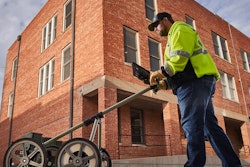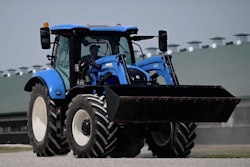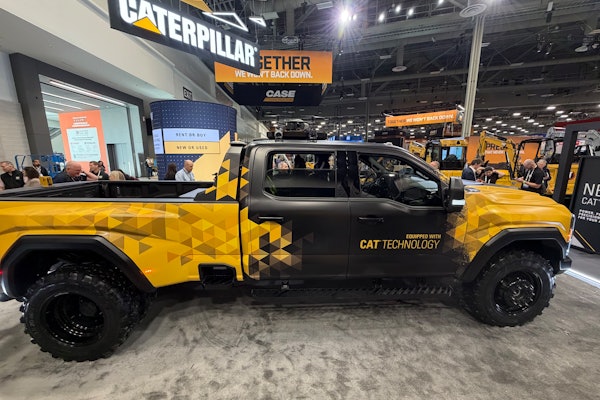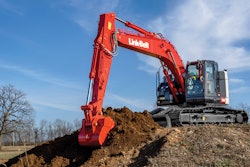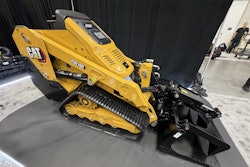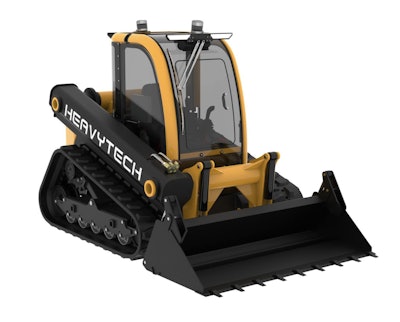
Michael Terzo believes hybridization is the future of vehicle propulsion. That’s why he co-founded Heavy Tech, to design and offer compact construction equipment with hybrid, modular powertrain systems.
Based in Fort Wayne, Indiana, Heavy Tech just leased its first assembly space where a small team is working on a prototype hybrid, single-arm compact track loader called the HT-2. The design includes proprietary embedded software that Terzo has been working on for years, as well as a unique, modular powertrain they call an “E-Engine.”
Terzo, a seasoned engineer, says their team designed the CTL’s chassis around their hybrid powertrain system vs. putting a hybrid system into a machine that was designed for a diesel engine. At the core, he says, it’s about improving fluid power efficiencies.
“Hybrid technology is absolutely stunning from a fuel efficiency cost standpoint,” he says. “[You get] productivity, you get ridiculous amounts of power, it's lower noise. But nobody in the industry, that I've seen, has taken a clean sheet approach in saying, ‘We're going to actually design the vehicles around it.’ Because it's actually not that easy.”
The modular element of their E-Engine means the diesel generator in the HT-2 can be swapped for additional battery power to turn this hybrid machine into a fully battery-powered electric machine. This is how, Terzo says, they plan to bring the HT-2 as a zero-emission machine for California.
The company plans to offer the HT-2 with three engines options at 120, 177 and 201 horsepower. A 201-horsepower HT-2 will weigh 8,800 pounds and offer 41 gallons per minutes in auxiliary hydraulic flow and 3,300 psi in auxiliary hydraulic pressure.
Key to the Heavy Tech business model is the estimated price point. The company’s website proposes its hybrid compact track loader will retail for $85,000 and offer a seven-year total cost of ownership (based on 500 hours per year) of $97,250.
Terzo points to current electric compact construction equipment on the market. “Let’s quit pretending somebody, on value, is going to buy a [electric] skid steer for two to four times what you can buy a diesel one for,” he says.
Target customers for Heavy Tech’s compact track loader include contractors, landscapers, the rental industry and recreational/ranch users.
Another component to Heavy Tech’s business model will be licensing the modular powertrain technology to other OEMs. The selling and licensing will be important, says Terzo, for cash flow.
After rolling out the HT-2, Heavy Tech plans to offer a mini excavator and compact articulated loader. Before they decided to focus on compact equipment only, Terzo says, they even had designs for a 50-ton excavator that uses their hybrid powertrain.
So far, the team at Heavy Tech has completed design work on its initial vehicle platforms, including the drivetrain, control systems and firmware. Additionally, the company has established component supplier relationships in the U.S. and developed its own scalable assembly model.
Terzo says the company will likely manufacture key components itself and outsource the remaining work to fabricators in the Midwest, while doing final assembly itself in Fort Wayne. Part of the reason for being in Indiana, he says, is to be closer to the suppliers with which they work.
The company has raised just over $272,000 through equity crowdfunding and an accredited investor offering, which Terzo says is going toward the first prototype. Heavy Tech forecasts it will become profitable in 2028 and plans to capture a 5%-10% share of the North American compact construction equipment market in the medium term.



